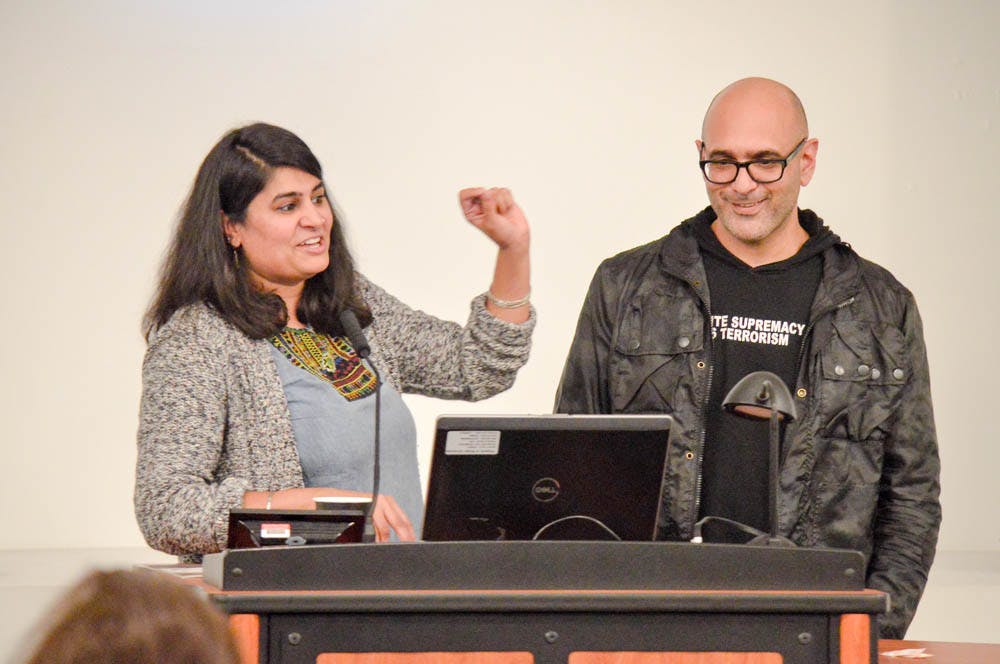Amin Husain and Nitasha Dhillon from the group MTL Collective analyzed activist efforts during recent global crises through the lens of modern art in a talk Tuesday at Pembroke Hall. MTL is a collective that aims to move toward decolonial freedom by exploring and blurring the lines between activism and artistic practice, according to Husain and Dhillon. Based in New York, it frequently takes on new projects in its efforts to deepen solidarity in response to movements and consider the spaces between politics and culture.
Husain and Dhillon have both been a part of many different movements, such as Occupy Wall Street, Black Lives Matter and Direct Action Front for Palestine.
The talk began with a video entitled “Training in Practice of Freedom.” Showing protests for Black Lives Matter and worker demands, the video’s purpose was often highlighted through text. Quotes such as “Our liberation is either a collective or it is nonexistent” occupied the screen and allowed the audience to fully immerse themselves in the meaning and experience of the words. “As we disrupt and refuse the role that art is now playing in the normal functioning of this global system which propagates racism and inequality, in its shadows we make space for something new to come into the world,” another quote read.
“Art embedded in struggle” is a recurrent theme the collective explores, Husain said. “Consumer debt, education debt, housing debt, health care debt — I mean, those are the things that are actually about freedom and our relationship with time.”
The speakers questioned the difference between organizing and activism — examining what the public recognizes as the work done by each action and what kind of elitist impressions are left on the world as a result. Husain argued that although the failure of language suggests “we don’t have the means to understand each other,” these differences between organizing and activism are not crystal clear and “these distinctions create conditions” that deserve our attention.
When asked about the primary purpose of Decolonize This Place, another movement the speakers are engaged in, Dhillon gave a two-fold answer. First, “Decolonize This Place is more around a structural response to the (crises) that we are seeing everywhere, be it an economic crisis or a crisis of racism. … It’s more visionary organizing than just being responsive.” She talked about how one can resist colonialism in all its different forms and also emphasized the importance of the relationships that are necessary for our freedom to exist. Dhillon then addressed the movement’s second purpose: to explore what it would mean to be in solidarity with each other.
Husain added that when selecting the projects they chose to explore, the collective is “trying to open up spaces, decolonize spaces that won’t open themselves up and (focus) on cultural institutions and galleries” as infrastructure that support movements in an effort to “change the conversation and build the organizing possibilities.”
Sherena Razek GS said MTL’s “work is imperative and it is part of a longer, ongoing movement that seeks to overhaul the museum as we know it.” Moreover, Husain talks about the extremely positive reactions from the public as resonating because they “see it and are a part of it.”





